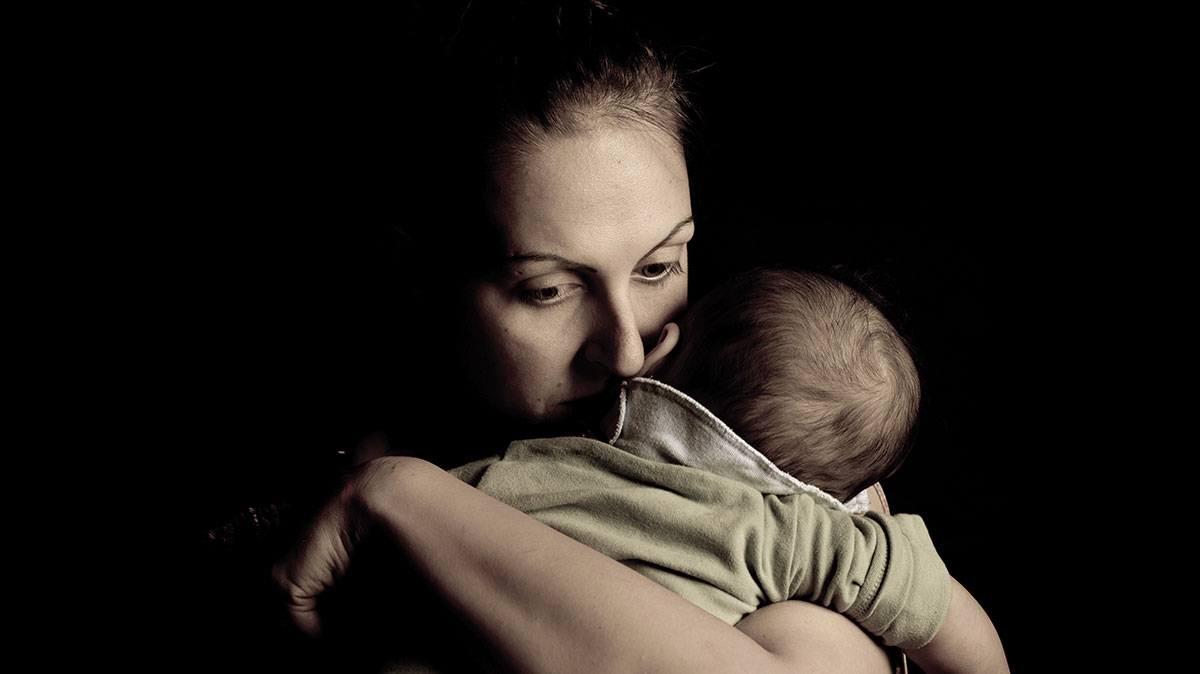
Being a new parent has its perks, among them chubby fingers to kiss and that powdery new-baby smell. But despite the new small person in your company, early parenthood can be a lonely gig. A U.K. study found that 55 percent of new moms mourned the loss of their pre-baby social life; per The Journal of Perinatal Education, social isolation is a major hurdle that new moms (and their caretakers) need to address.
Loneliness feels lousy, but it can also seriously derail your health: Studies link loneliness to poor sleep quality, decreased immune function and higher levels of inflammation, which contribute to arthritis, type 2 diabetes and heart disease. In older adults, loneliness almost doubles the risk of premature death .
Fortunately, it’s possible to stave off new-parent social isolation, but doing so takes effort, advance planning and some thinking outside the box, says Christa Melnyk Hines, author of Confidently Connected: A Mom’s Guide to a Satisfying Social Life. “We’re social beings, but we live in a culture that prizes independence. The inability to ask for help or not knowing whom to ask can make a new mom feel very lonely.”
Practice acceptance
After her daughter was born in early 2010, Shannon Walker’s regular sources of social interaction — after-work classes at a local gym and evening get-togethers with fitness-minded pals — didn’t jibe with her new stay-at-home-mom schedule or the demands of parenting a newborn.
“I remember thinking, ‘When I have a kid, I hope I don’t become one of those people who fall off the face of the earth socially,’” recalls the Tacoma mom. “And then I did. I felt like I lost part of that person.”
A few months in, she realized that old social habits weren’t going to fit into her new life as a mom, at least not right away. In the second half of her baby’s first year, she discovered Meetup and the parenting group that she now leads. Accepting her new “mom status” was a breakthrough moment that helped her find new community, she says. “I’m still friends with my gym buddies, but I’m part of a new world, too.”

Social savvy: Accept that relationships and schedules change. Try to maintain old friendships, but explore new horizons, too.
Be less kid-centric
It’s a common scenario: Pals become pregnant at the same time and look forward to sharing playdates and swapping in-the-trenches tales over double lattes at baby gym class. All too often, though, it doesn’t pan out. Walker and a close girlfriend became pregnant around the same time, but eventually they parted ways when their children and parenting styles turned out to be polar opposites.
Andrea Cantu, a Burien mom to 4-year-old twin boys, has a similar story. Her best pal had a daughter shortly after Cantu had her sons, but now, the moms rarely get together. “Everyone gets busy, and it’s just too hard to make the schedules match up,” Cantu says.
When a formerly strong friendship falters in early parenthood, it may be time to rethink expectations for the relationship; this person may not be a playdate go-to, but she could still remain a good friend.
Maintaining some friendships that don’t center around your offspring is a healthy way to retain part of your pre-kid identity, says John Sommers-Flanagan, Ph.D., associate professor at the University of Montana and a member of the American Counseling Association.
“We put this silly pressure on moms that their new lives, including their social interactions, should be about their child 24/7. Kids need moms who take care of themselves, and that includes having relationships outside the child,” Sommers-Flanagan says.
Social savvy: Not every relationship or social date should be about the kid(s). Friends who are parents but have different parenting styles or kids who clash may be better off meeting for drinks or a Spinning class after the kids are in bed. And socializing with non-parents via a local running club or book discussion group could be a refreshing blast of real-world perspective after a long day filling sippy cups and wiping noses.
Bolster your network in advance
New-parent loneliness can strike anyone, but certain parents may be more at risk, including those with a child who has special needs, those whose friends don’t have children yet or those with a history of depression, Melnyk Hines says.
In those cases, it’s smart to plan ahead. “Some moms join moms’ groups while they’re still pregnant, anticipating that they are going to need a network of support after the baby arrives,” she says. (And most moms’ groups welcome participation from expectant parents.)
“This is a great way to help buffer yourself from isolation if you don’t already have a strong support network in place,” Melnyk Hines notes. “Once the baby arrives, you may feel too exhausted to make the extra effort to find a moms’ group right away.”
Social savvy: If you have some time before Junior arrives, use it to scope out or join new-parent groups. Many health care providers and hospitals, including Swedish Medical Center, Northwest Hospital & Medical Center and Overlake Medical Center, offer support groups and classes for moms with children born around the same time. Search MeetUp, PEPS and even Facebook for parenting groups in your area.
Use social media as a springboard
Go ahead and join that Facebook parenting group, but don’t restrict yourself to screen-based social interactions. Despite news feeds packed with smiling faces, social media won’t cure social isolation. In fact, studies show that Facebook users are generally lonelier, and a study from the University of Michigan found that Facebook use undermines happiness and well-being.
To really grow and deepen a friendship, nothing can completely trump face-to-face interaction.
One possible reason: Facebook and Twitter provide photographic proof that everyone else is having more fun than you, without you. Social networks can be a double-edged sword for new parents, helping them connect to one another while simultaneously making them feel left out, Cantu says. “My mom said, ‘Twenty or 30 years ago, you just thought everyone else was busy, but you didn’t have this visual confirmation that you were missing out. Now, you have it thrown in your face.’”
Online interactions can be a great way to test out a new social group; because loneliness increases feelings of vulnerability, it’s helpful to feel like you’re accepted before meeting in person.
But once parents find communities online, the next step is to go out and meet these people face-to-face, says Sommers-Flanagan. “It can be nerve-racking to meet new people for the first time, of course. But the best cure for anxiety is exposure. The more you do it, the easier it gets.”
“To really grow and deepen a friendship, nothing can completely trump face-to-face interaction,” Melnyk Hines says. “It gives us feedback and immediate responses like nonverbal gestures and facial expressions, which builds trust.”
Social savvy: Seek out social connection online, but ditch the screens for regular face-to-face socializing, too. And make a standing date to meet a friend for drinks or coffee in person — with or without baby.
National resources
- Adoptive Families Circle Support Groups
- International MOMS (Mothers Offering Mothers Support) Club
- Holistic Moms Network
- La Leche League (support for breastfeeding mothers)
- Meetup
- Mocha Moms
- Moms in Motion
- Mothers of Preschoolers (MOPS)
- MomMeetMom.com
- Mothers & More
- National Association of Mothers’ Centers
- National Organization of Mothers of Twins Clubs
Source: Christa Melnyk Hines, author of Confidently Connected: A Mom’s Guide to a Satisfying Social Life.
Seattle-area resources
- Ballard Mothers of Preschoolers (MOPS) Group
- Eastside Attachment Parenting
- Eastside Families of Multiples
- Families of Color Seattle (FOCS)
- Green Lake Moms
- Kirkland Moms Network
- Listening Mothers
- Mount Baker Parents
- PEPS (Program for Early Parent Support)
- Seattle Attachment Parenting (API)
- Seattle PFLAG (Parents, Family & Friends of Gays and Lesbians)
- Seattle Single Parents Meetup Group
- Seattle Stay At Home Dads
- Tacoma Area Attachment Parents












